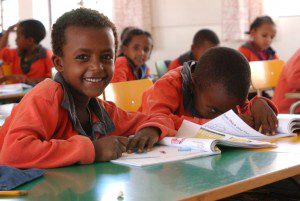
School children in Ethiopia. Photo Credit: Niamh Burke/UNESCO with permission from Basic Education Coalition
A significant opportunity for accelerating progress towards poverty reduction and human well-being will be lost if the post-2015 development agenda does not retain robust sectoral goals which improve upon the current Millennium Development Goals (MDG). At the Basic Education Coalition, we have put forth our recommendations for a Post-2015 education framework and we hope the UKFIET constituency will give us some feedback.
The UN-convened High Level Panel of Eminent Persons met last week in Monrovia, Liberia to discuss possible post-2015 agendas that would reflect the importance of sustainable development. In this regard, the panel’s consideration of overarching themes, including economic growth, social equality and environmental sustainability, promises to be a crucial part of the framework for post-2015 goals. The panel’s attention to neglected constituencies for more effective, inclusive development, as well as cross-cutting goals that would create greater efficiencies and incentive for stakeholder collaboration, are equally important.
The current MDG goals, while imperfect, undeniably have mobilized resources, driven country budgets, informed donor strategies, and rallied support worldwide for the remarkable progress we have seen in improving humanity’s condition. Strong sectoral goals can and should coexist within a larger framework of sustainable development, and indeed are essential to giving that framework meaning and focus.
Education is one such imperative that is best advanced by as a sectoral goal which supports, but is not displaced by, any larger framework of sustainability. Recently, the Basic Education Coalition, a consortium of 18 U.S.-based organizations advocating for effective U.S. programs and policies in global basic education, published its recommendations for a new set of global education goals.
Our recommendations, outlined in Each Child Learning, Every Student a Graduate, are built around a straightforward objective – that by 2030, all children should be able to complete a quality primary and lower secondary education based on each country’s standards for learning and skills acquisition. Our vision is reflected in post-MDG and EFA goal language and accompanying indicators, and would cover both formal and non-formal education.
The particular language we suggest for a post-MDG goal is: By 2030, all children and youth should complete primary and lower secondary education which enables them to meet measurable learning standards and acquire relevant skills so they may become responsible, productive members of society.
The paper’s key themes are highlighted below:
1. The central vision of completing an education – graduation – is commonly understood and appreciated by children, youth, families and people everywhere. It is critical that we step back and remember that the post-2015 education goals must first inspire and rally people everywhere who are demanding education. If we cloak the goal language in complex formulas or techno-speak, we risk losing their faith and support.
2. The goal encompasses all three key challenges to continued progress towards Education for All: access, equity and learning. This is strategically important since it may not be realistic to expect separate post-MDG education goals relating to each of these issues.
By referring to “all children and youth,” the goal includes marginalized and vulnerable groups, and thereby integrates completion of an education directly with the critical challenges of access and equity. Tracking tools and data currently exist, such as the World Inequality Database on Education (WIDE), published by the EFA Global Monitoring Report, which could help each country identify marginalized and vulnerable groups, including girls, children in conflict, the disabled and others, and set plans and allocate resources for eliminating education disparities.
Further, with respect to learning, the goal specifies that a child or youth must receive an education that enables them to meet measurable learning standards, and acquire relevant skills. Such standards should be defined in a country’s national education plan, but at a minimum should include the core elements of a quality basic education, including literacy, numeracy, critical thinking and life skills. The completion goal is further associated with a good quality education through an indicator tracking the percentage of countries whose national education plans and policies are standards-based and monitor learning outcomes, skills acquisition, and teacher and other educational staff’s certification and professional development, and which make systematic use of standards-based exams and other tools for assessing continuous learning.
3. The approach we take ensures that the post-MDG and post-EFA goals and their respective indicators mutually reinforce one another, and together cover the spectrum of lifelong learning. Thus, the indicators for the post-MDG goal both relate to that goal and mirror the four streamlined EFA goals we have proposed. The goals also include targets for early childhood care and education, as well as adult literacy programs, and tie these back to the central vision around completing an education built on standards for learning and skills acquisition.
4. The goal honors the right to education enshrined in international law. If we are to truly respect the right of each child to receive a quality basic education, we must look beyond mere enrolment or even attendance. To give this right meaning, all children must actually complete an education where they can learn the core competencies of a basic education and acquire relevant skills that will serve them well in their later education and in finding gainful employment.
5. Our recommendations reflect a balance between having universal goals to which all countries should aspire, and the flexibility and discretion countries need to achieve them. Thus, countries should be able to track their progress towards the completion goal in a way that accounts for the status of marginalized and vulnerable groups, utilizing tools like the WIDE database mentioned above. Moreover, we should not use goal-setting to prescribe to countries which learning standards, assessment tools, or approaches they should employ, or even embed in goal language the particular outcomes they should expect to reach.
Rather, with input from all stakeholders, we recommend that an international body launch a series of global consultations on effective education practices and standards, focusing on access, equity, learning and sustainability. These consultations could occur regionally, and the findings could shape national education plans and advance the post-MDG and EFA goals. Thus, we avoid dictating unrealistic or one-size-fits-all outcomes, and instead commit to collaborate around a common understanding of the key drivers for progress and impact.
The Basic Education Coalition would welcome’s your comments on our proposed framework.

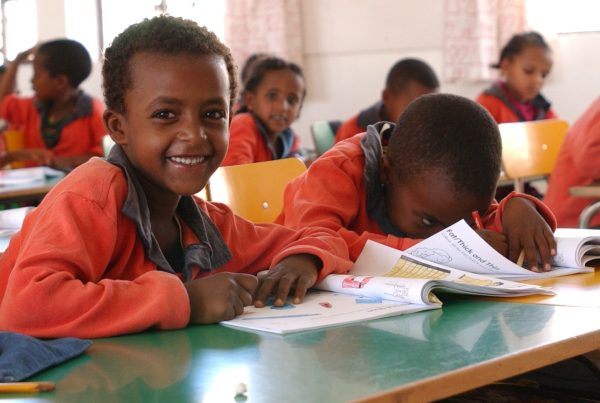
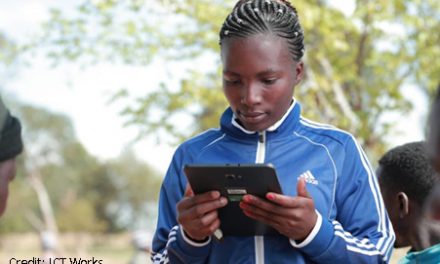
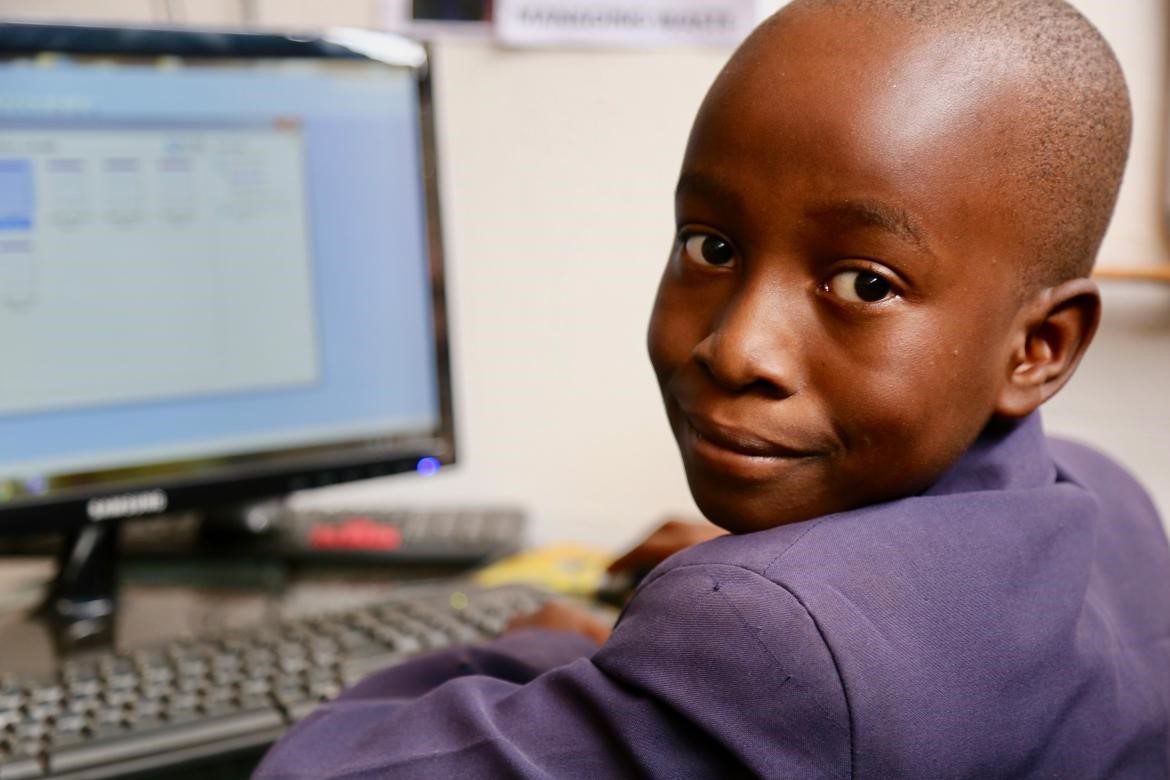
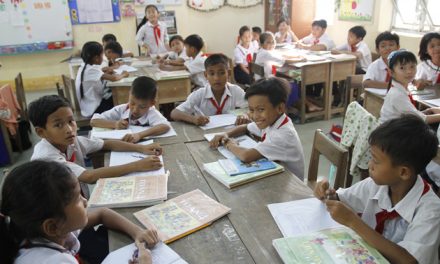

Very good initiative. I am willing to join you please